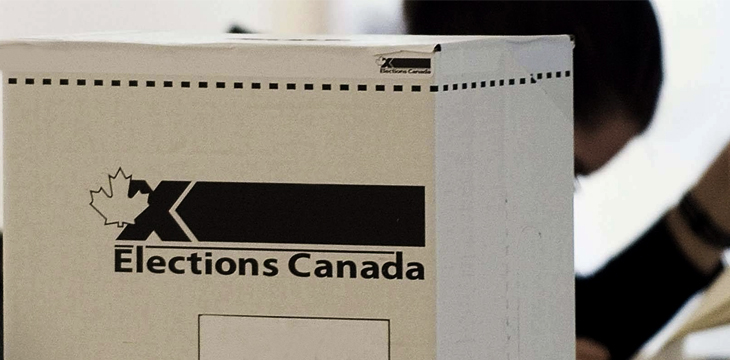|
Getting your Trinity Audio player ready...
|
Elections Canada is getting ready for the next election cycle, and they’re doing it by addressing cryptocurrencies. To get everyone on the same page, they have issued an Interpretation Note of their view of how cryptocurrencies should work as donations, with an invite to the registered political parties to provide their own opinions.
In the note, Elections Canada takes the position that digital currencies are non-monetary, in-kind contributions. They explain this logic in the following passage:
“Like money, they can be used to make purchases from businesses that choose to accept them. But unlike money, they cannot be placed directly into a bank account. Instead cryptocurrencies can be sold for traditional currencies that can be placed into a bank account. In this sense, they are more like stocks or bonds, which are a form of “property” and fall under the definition of a non-monetary contribution.”
They support this argument by pointing to similar decisions by Elections BC and the U.S. Federal Election Commission. Elections Ontario has decided that cryptocurrencies are no different than money.
The practical impact of this decision is non-monetary, in-kind contributions are not eligible as tax deductions under the Canadian tax code. Declaring cryptocurrencies in this way actively discourages their use in Canadian politics.
This is disappointing to fans of the original vision of Satoshi Nakamoto, since Bitcoin should be digital currency, and not a store of value. Bitcoin was reborn in November 2018 as Bitcoin SV (BSV) and it appears that fans of the only crypto to follow Satoshi’s whitepaper will have a strong difference of opinion with Elections Canada on the nature of their donations, if they donate with BSV.
https://youtu.be/gBb9FSxfyVs
Another issue the Interpretation Note brings up are the rules about anonymous donations. Under election donation laws, any donation above C$20 (US$15) must be made by a citizen or permanent resident of Canada. If the political parties publish wallet addresses to accept donations to, it will be nearly impossible for the parties to verify every donation made, as users could generate new public keys for each transaction.
At the moment, all of this is hypothetical. None of the major Canadian political parties accept crypto donations. With a 2019 election mandated by Canadian federal law, it’s still nice to see Elections Canada is thinking ahead, even if they might be slightly off.

 02-22-2026
02-22-2026 




